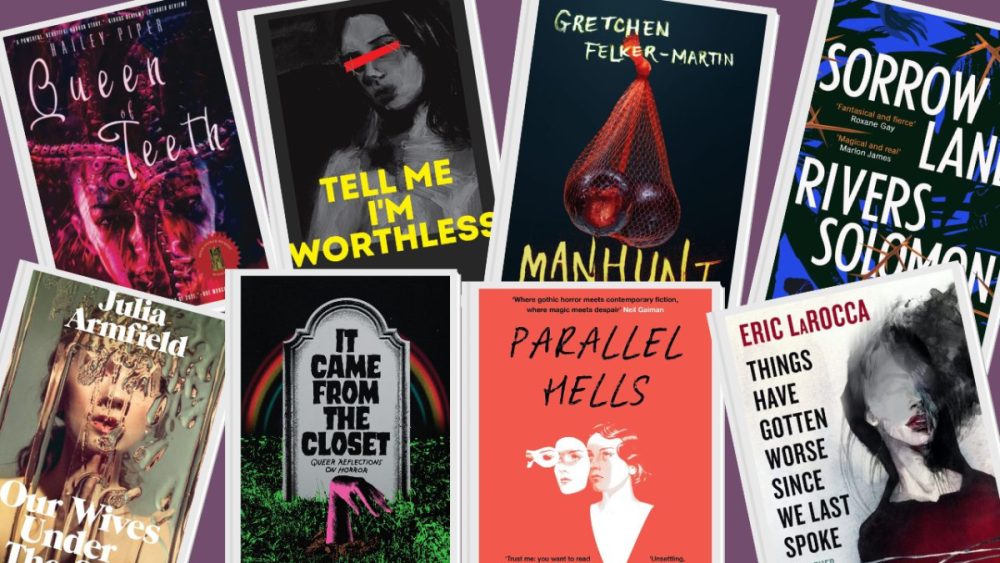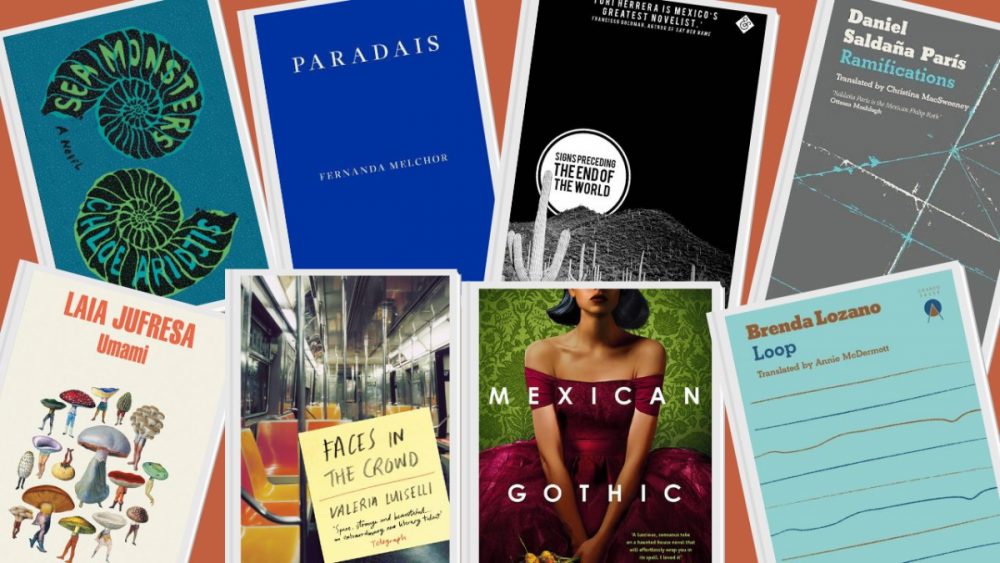Iceland is a nation celebrated the world over for its history of storytelling. Narratives and folk tales run deep in Iceland, so it’s no surprise that Icelandic books are some of the very best. Thanks to feminist Icelandic authors like Auður Ava Ólafsdóttir and Nobel Prize winners like Halldór Laxness, Iceland’s literary legacy is strong and awe-inspiring.
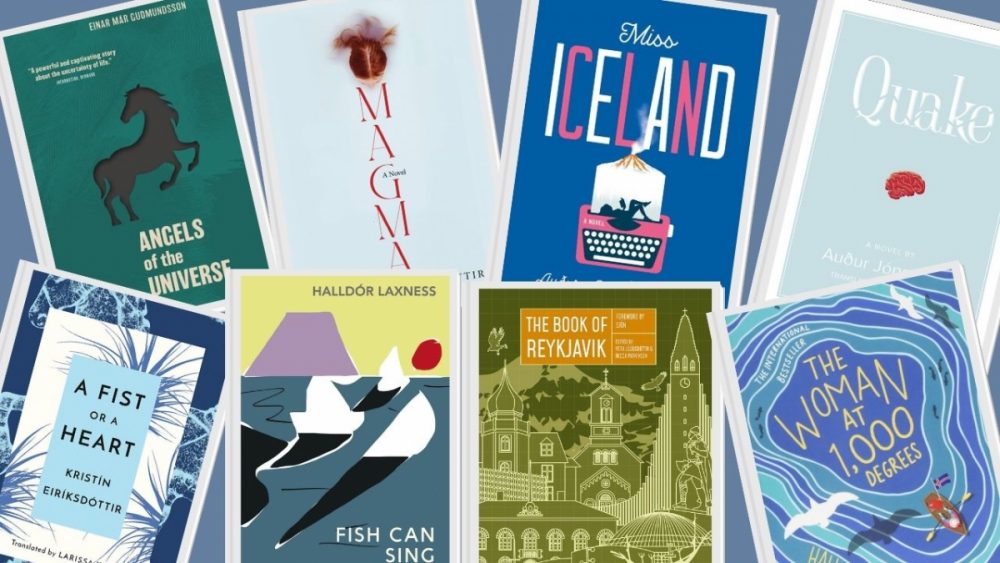
The Best Translated Icelandic Books
With Iceland having such a legacy of great literature, let’s take a look at the very best of modern Icelandic literature. These are your essential Icelandic books, written by the finest Icelandic authors of the 20th and 21st Centuries.
Miss Iceland by Auður Ava Ólafsdóttir
Translated by Brian FitzGibbon
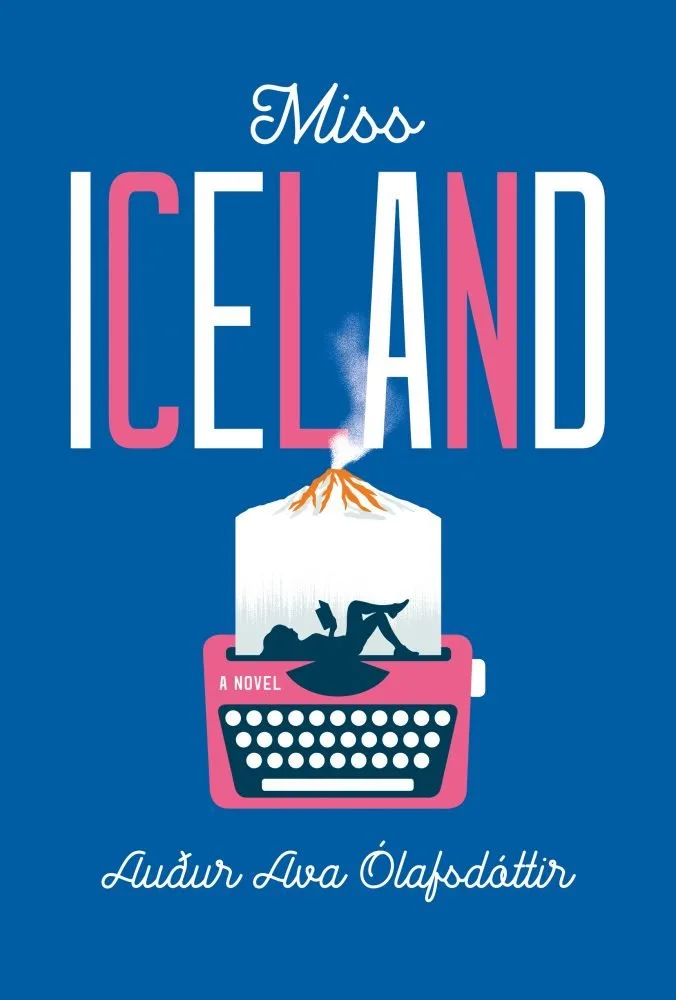
Hekla’s father named her after a volcano. Four years after she was born, the volcano after which she was named erupted, and her volcano-obsessed father took Hekla in his Jeep to see the eruption. The sight forever stoked a burning fire in her, turning Hekla into a young woman who wanted nothing in the world but to be a publisher writer.
She spent her life writing poems and manuscripts, frantically chasing her dream. But in Iceland in the 1960s, Hekla had more chance of being crowned Miss Iceland than of being a published woman writer.
Across the narrative of Miss Iceland — one of the best modern icelandic novels — we hope to see Hekla travel from her remote village to Reykjavik, live as a struggling artist for a while, but eventually overcome and succeed. We will peer into her mind and glimpse her beautiful poetry and visionary stories.
What we get instead is a cold slap in the face; the same slap that hits Hekla over and again. A woman in 1960s Iceland cannot be an author or a poet. It might be a land of poets and writers, a land of myths and legends, but a woman has no place amongst any of that.
Miss Iceland, through both its gripping language and its romantic execution, leads us to believe that Hekla is our hero, and that we will follow her into greatness. What we get instead is a woman arriving in Reykjavik with an English copy of Ulysses and a manuscript of her own in her bag, only to come face-to-face with the crooked and unnecessary evils of the world.
Taken from our full review of Miss Iceland
Magma by Thora Hjörleifsdóttir
Translated by Meg Matich
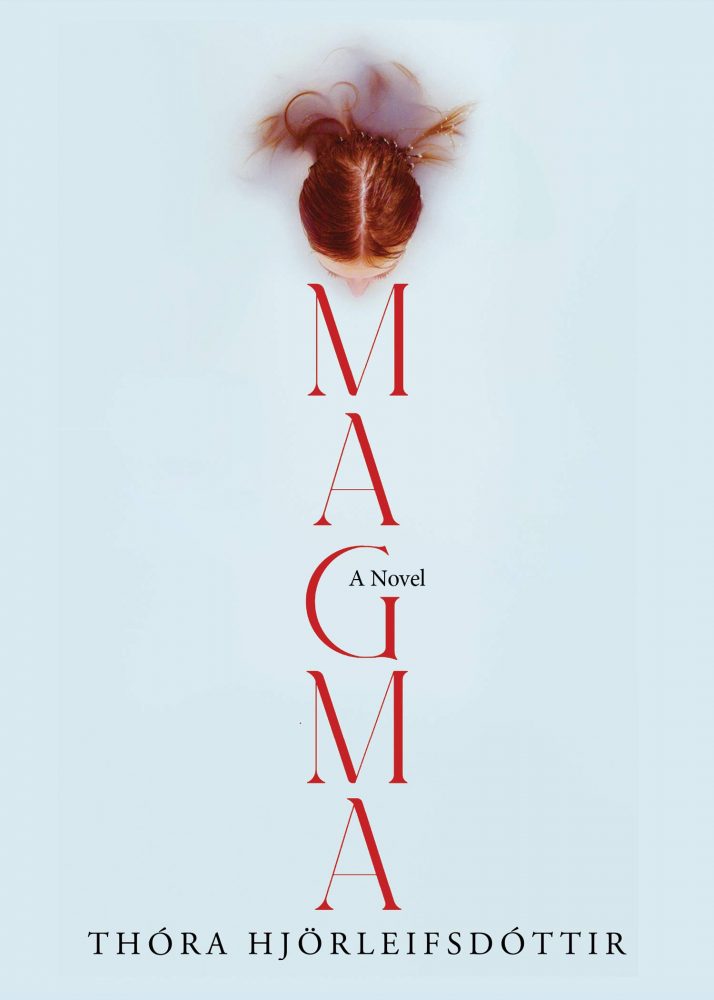
Here is the debut novel by Icelandic poet Thora Hjörleifsdóttir. Magma is a 200-page feminist Icelandic novel written in small, diary-like vignettes which record the life of a young woman named Lilja. Lilja has entered into a new relationship with a quietly toxic and emotionally manipulative man who remains unnamed, and who becomes something of a gothic monster as the book progresses.
Her partner represents not only the toxic and gaslighting men of the world, but all toxic friends and partners that we have suffered with throughout our lives, regardless of gender or sexuality. Each tiny chapter of Magma jumps forward a little, recording a new moment or stage in their relationship, as Lilja becomes unable to leave, feeling strangely attached to him and convinced that she is in love.
All the while, he controls her, gaslights her, and builds a shell of paranoia around her until she feels cocooned, trapped, lost, and dependent. It’s dark, difficult, and too familiar for many of us. Magma is a mesmerising work of feminist Icelandic fiction that warns us all against the power and tactics used by toxic people to remove our autonomy and grind us down.
One of the best Icelandic books you’ll ever read, Magma is an essential and relatable, if heartbreaking read.
Watch our full video review of Magma
The Book of Reykjavik: A City in Short Fiction
Edited by Becca Parkinson & Vera Juliusdottir
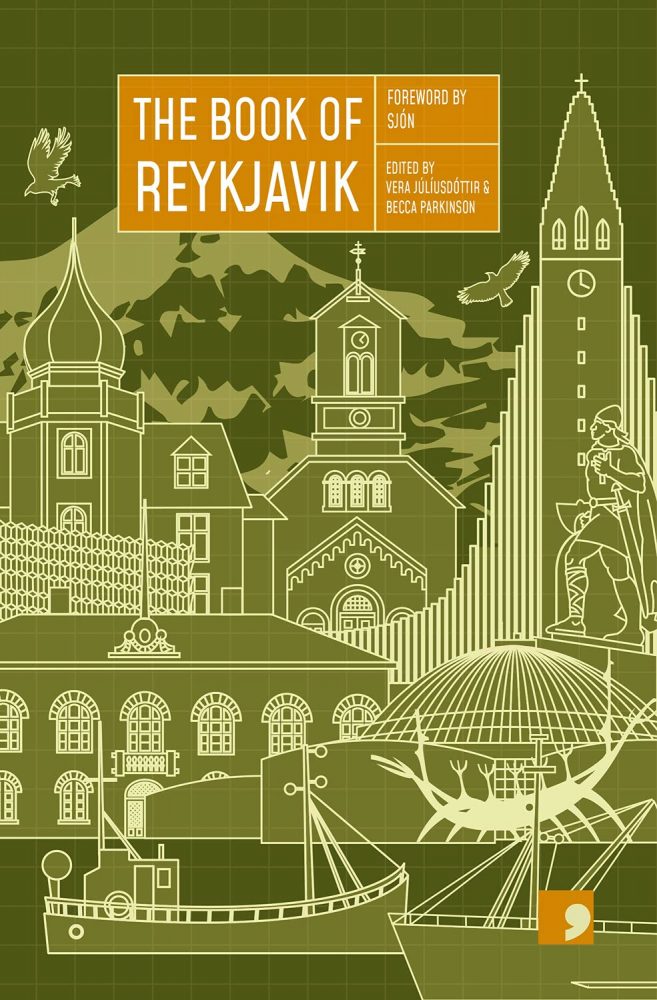
Comma Press is one of the best and boldest indie publishers in the UK, and a big reason for that is their A City in Short Fiction series. In a genius move, Comma Press moves from city to city across the entire globe, and collects wonderful short stories by authors from those cities before having them translated and bound together.
They’ve explored cities like Tehran, Cairo, Jakarta, and so many more. And here is The Book of Reykjavik, one of the best Icelandic books you could ever get your hands on. Given Iceland’s legendary status around the world as a land of stories and sagas, having a collection of modern short stories by some of the best Icelandic authors is truly a gift.
Here is the full list of Icelandic authors found in this collection:
Friðgeir Einarsson, Kristín Eiríksdóttir, Þórarinn Eldjárn, Einar Már Guðmundsson, Björn Halldórsson, Fríða Ísberg, Auður Jónsdóttir, Guðrún Eva Mínervudóttir, Andri Snær Magnason, Ágúst Borgþór Sverrisson.
The stories in The Book of Reykjavik bring the city to life, turning it into a character in and of itself. And that character is one with real dimension: a hero and a villain both. This is one of the best Icelandic books because it shows all the different sides of Iceland’s capital: the brightest and the murkiest bits; the hopeful and the hopeless.
The Book of Reykjavik is a book of landscapes and cityscapes, of people and places. It is shameless and bold and impactful and unforgettable. We even get a foreword by Sjón, arguably Iceland’s most famous and celebrated modern novelist (featured further down this list).
The Mark by Fríða Ísberg
Translated by Larissa Kyzer
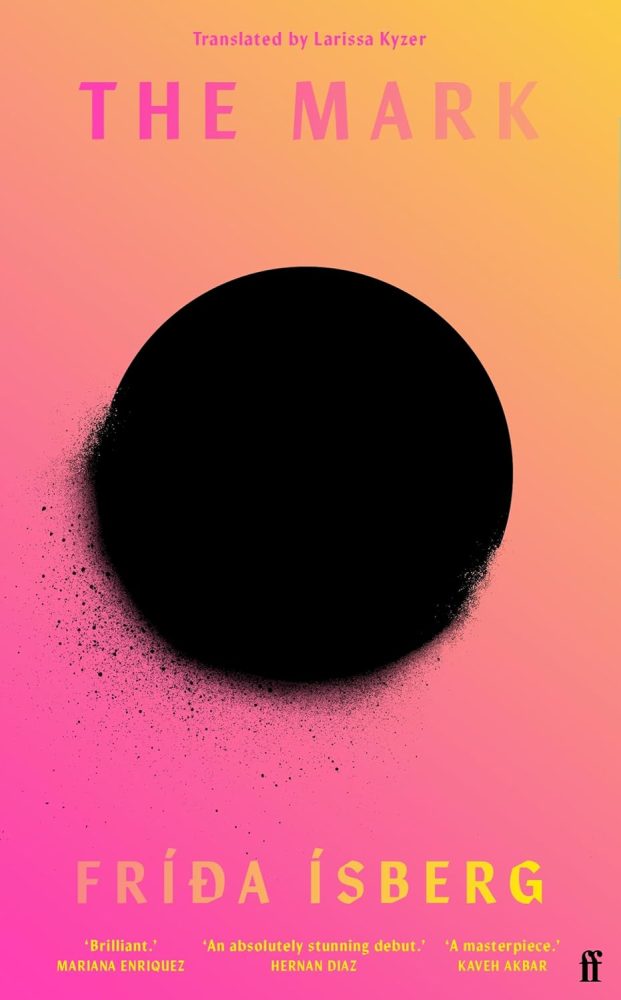
In the near future, an “empathy test” has been devised, the purpose of which is to divide society into those who are empathetic, kind, and safe to be around, and those who are potentially dangerous and, thus, in need of support in order to improve. For now, the test is only mandatory for certain public servants, but an imminent referendum will determine whether or not it becomes mandatory for all citizens of Iceland.
We follow four protagonists in the lead up to that vote. Along with a teacher and a businesswoman, we also have the head of the team of psychologists who created the test and a member of a group who protest its mandatory rollout. Through their eyes, we see every possible side of this debate. In that sense, this is a fantastically nuanced novel that deeply explores human rights and laws.
Suspenseful, considerate, and wonderfully insightful, The Mark is a bold new entry into the world of speculative and political fiction.
Quake by Auður Jónsdóttir
Translated by Meg Matich

Something that many of the best Icelandic books tackle repeatedly is the darker, more intimate difficulties of everyday life. Icelandic fiction is often literary fiction at its peak. Quake by Icelandic author Auður Jónsdóttir is perhaps one of the finest examples of great modern literary fiction across the canon of Icelandic books in translation.
Our protagonist is Saga, a divorced mother who is hit with a grand mal seizure that steals away almost all of her memories. As she recovers from her seizure, Saga’s life becomes a puzzle: a series of questions and clues and revelations for her to piece together.
Like many of the best pieces of literary fiction, Quake takes elements and techniques from genre fiction (for Jónsdóttir, it’s mystery stories), to weave together something wholly unique and unsettling. The fear and tension and confusion that Saga feels, we feel it too with every page turn. Every question she has becomes a mystery we are now desperately invested in.
But at its heart, Quake is also a family drama, and its her child, her ex-husband, her family who are the glue of this novel, and its with them that the biggest revelations lie. Auður Jónsdóttir is one of Iceland’s best novelists, and so it is unsurprising that Quake is one of the best modern Icelandic books on the shelves.
Read More: Essential Norwegian Novels
A Fist or a Heart by Kristín Eiríksdóttir
Translated by Larissa Kyzer
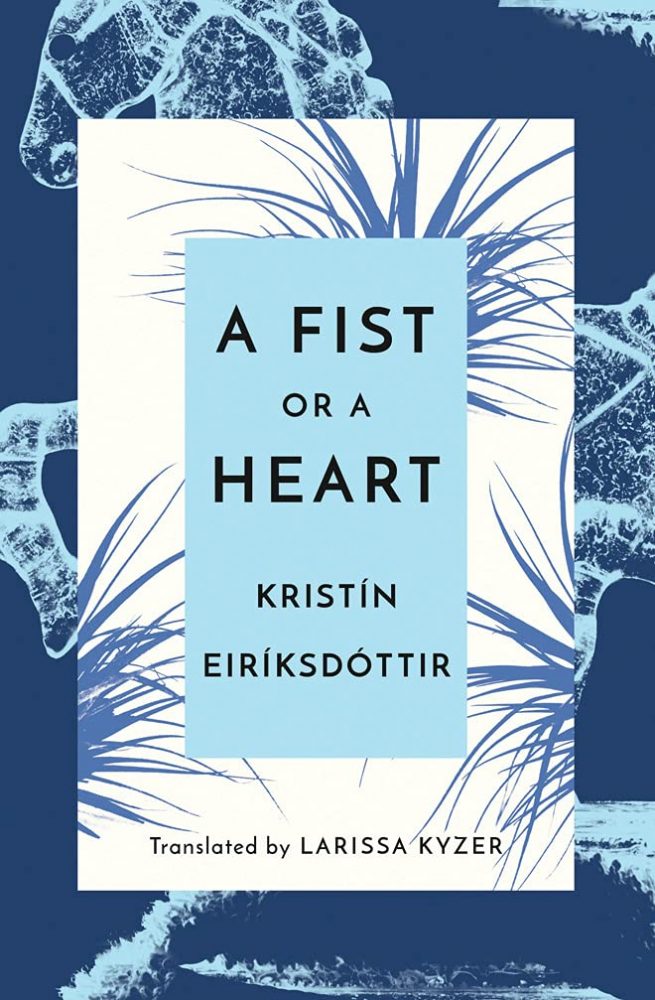
Kristín Eiríksdóttir is a celebrated Icelandic author, and A Fist or a Heart is her first novel to be translated into English. It also won the Icelandic Literary Prize. This short Icelandic novel’s protagonist is a woman in her seventies named Elín, who makes (sometimes gruesome) props for theatre and TV companies in Reykjavik.
Elín soon becomes maternally intrigued by a similarly eccentric but lonely (and similarly named) woman: Ellen, daughter of a writer and a playwright in her own, er, right. The two women have met once before, but we don’t learn the details until the novel’s climax.
As A Fist or a Heart progresses, we are carried forward by the plot but also flash back to Elín’s younger years and traumas. The parallel lines between these women guide us through this short novel and towards its conclusion. Having made more than one enormous splash in the already crowded literary world of Iceland, A Fist or a Heart is one of the most essential Icelandic books you can read right now.
The Woman at 1,000 Degrees by Hallgrímur Helgason
Translated by Brian FitzGibbon
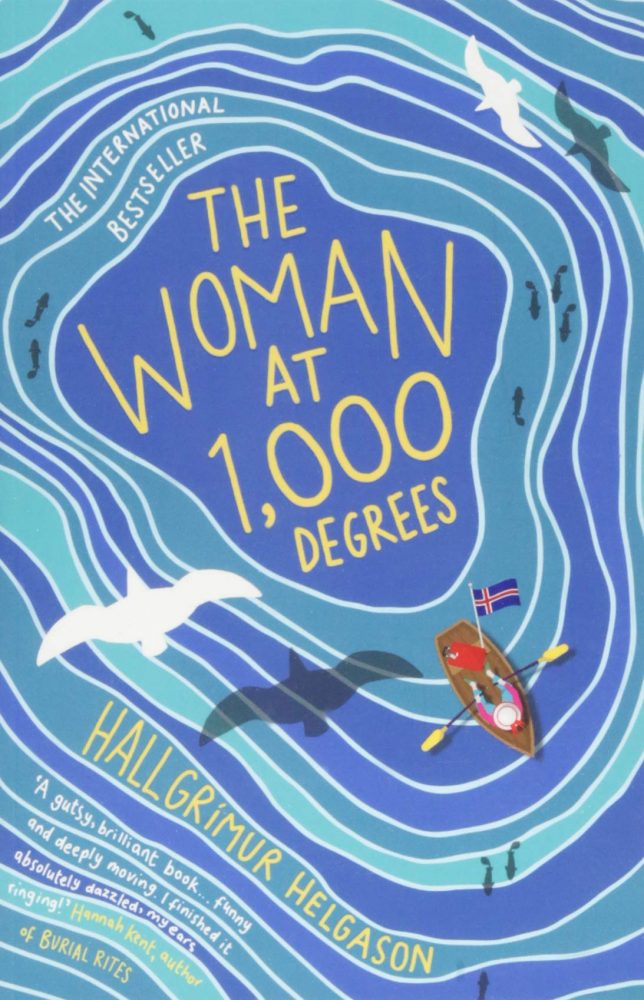
If there is one thing the literary world could do with more of, it’s older protagonists. We’re drowning in YA fantasy novels and young, stoic protagonists but what we need is more women like Hella. When we meet Herra, she’s slowly dying in her garage (she even has her own cremation booked), and she has with her a laptop and a German World War II hand grenade. She’s a quirky character, to say the least.
We journey through Herra’s memories as we relive the brightest and darkest parts of her life: from a childhood in a remote fishing village, through a war, and right around the world. While living in Denmark, Hella’s father fought on the side of the Nazis. She has married men, had their children, and lost them. She has seen things you can’t imagine. And she remains fierce and funny after it all.
Hella is like no protagonist you’ll ever come across. She is fuelled by a laugh-out-loud wit and a lot of dark observations. She should be regarded as one of the literary canon’s great protagonists. Our first-person narrator has experienced unbelievably tragedies. She has been attacked, abused, sold, and had everything stripped from her.
Now, at the end of her life, she narrates these experiences to us with a kind of brave and sardonic wit that almost feels like it shouldn’t be allowed. Around half of this book focuses on the war years; the youth that moulded Hella into who she is, and these experiences are far from pleasant. But all along, her wit and humour remains strong.
It’s safe to say that The Woman at 1,000 Degrees is unlike anything you’ll ever read, and one of the great modern Icelandic books in translation.
Independent People by Halldór Laxness
Translated by J A Thompson
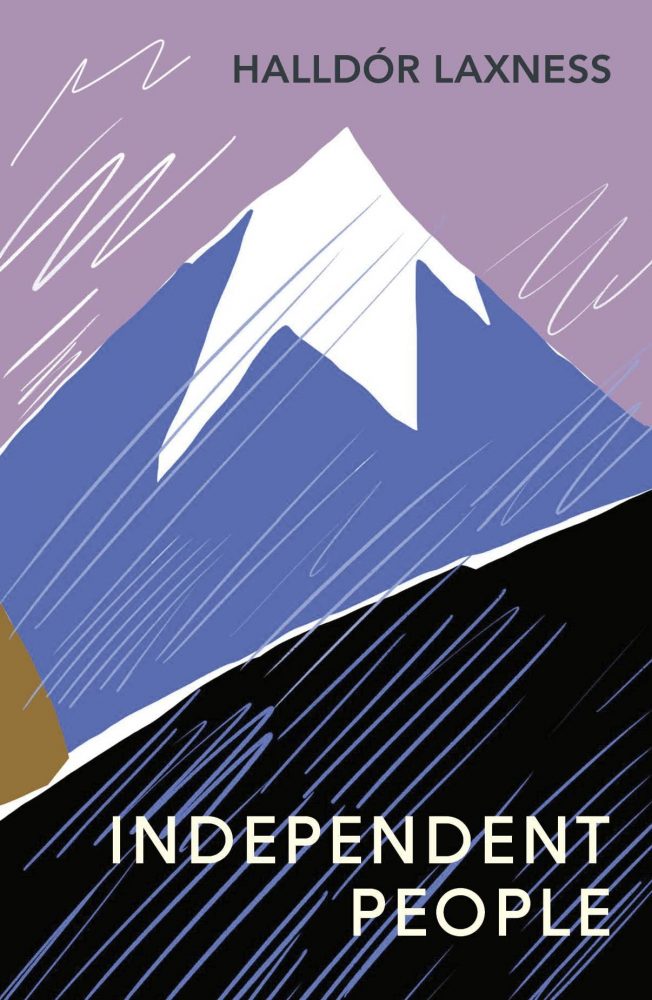
On this list of the best Icelandic books, none come close to Independent People in terms of its impact and acclaim. So many of the authors here are powerful, brilliant writers, but Nobel Prize-winner Halldór Laxness is a true legend of the literary form, and Independent People is heralded as his finest work of fiction.
Originally written in 1935, twenty years prior to Laxness winning the Nobel Prize in Literature, Independent People is a deeply intimate novel that shines an accusatory light on capitalism. Independent People paints a vivid picture of rural life in early 20th Century Iceland, and the fight that rural farmers had to have for survival — both financial and mortal.
Reminiscent of some of the best modern Japanese novels, Independent People captures a moment of change, as traditional life is edged into the margins to make way for modern, industrial living. Our protagonist is a rural Icelandic sheep farmer named Bjartus, who endeavours to survive off his cold, dead land.
We also learn about the history of Iceland during this tumultuous time period: how the nation was affected by the Great War and how Iceland’s political and economic shifts affected men like Bjartus. Bjartus is not always the reader’s friend. He is a difficult protagonist to root for sometimes, with his stubbornness and his attention divided between the past and the future.
But he is a deeply human character whom we feel great pride for and investment in, all the same. He is as harsh and cold as the landscape we inhabit through the course of this astonishing novel. Independent People is at once political, personal, intimate, and broad. It is one of the greatest Icelandic books ever written, and absolutely essential reading.
Cold Moons by Magnús Sigurðsson
Translated by Meg Matich
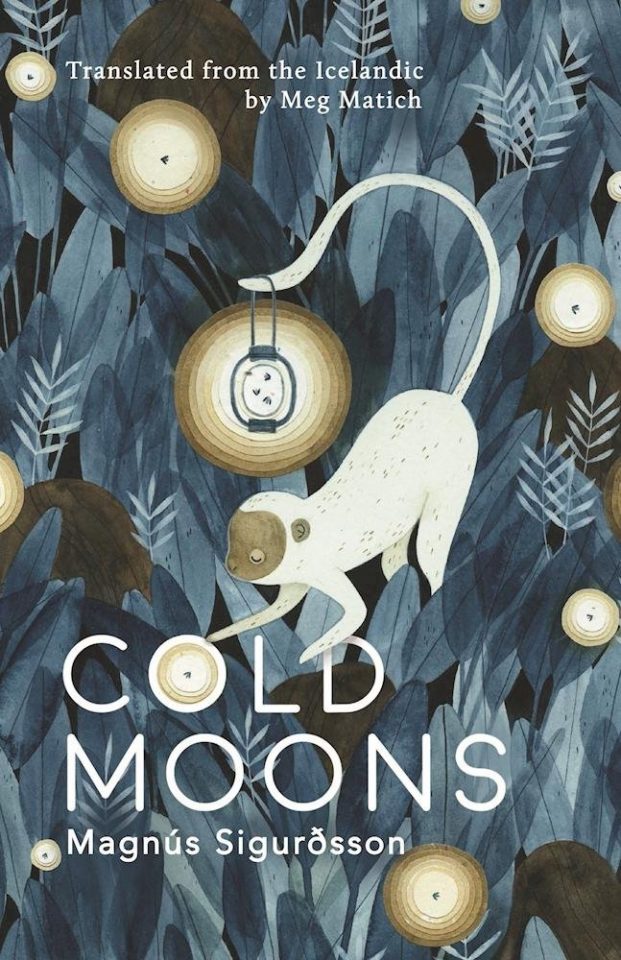
Poetry in translation is an unusual thing, and it takes a deft hand to properly translate the tone, emotion, message, and rhythm of a great poet. Meg Matich is one of those translators. Cold Moons is a collection of Icelandic poetry by Magnús Sigurðsson, who is also a translator in his own right.
The poems in Cold Moons, like so many of the great works of poetry throughout history, have a romantic attachment to the natural world. These poems are full of space and quiet and calmness, and through all of that the wind blows and the trees rustle.
These are poems that love the world, and celebrate it, and breathe it in. They are poems to quiet your mind and make you feel in touch the the land and the sky. Amongst all of these Icelandic books, this is a powerful and righteous collection of stellar Icelandic poetry.
Read some of the poems from Cold Moons
Moonstone: The Boy Who Never Was by Sjón
Translated by Victoria Cribb
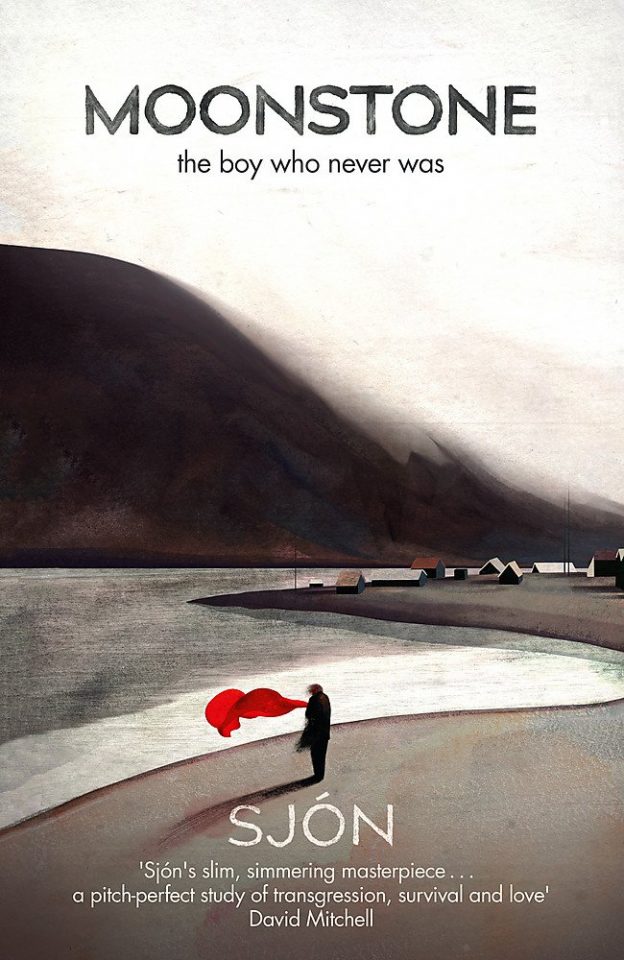
Sjón (full name: Sigurjón Birgir Sigurðsson) is a literary national treasure in Iceland; celebrated as an author, poet, screenwriter, and Björk collaborator. A dozen poetry collections and a dozen novels makes for quite the legacy, so it’s difficult to pick a single book to discuss. Whichever one you go with, it can be treated as a door into the rest of his world.
With us being big fans of historical fiction, let’s go with Moonstone: The Boy Who Never Was, one of the great modern Icelandic books.
We begin in 1918, the year of The Great War, the Spanish Flu, and for Iceland the eruption of the Katla volcano. Our protagonist is a young film fanatic named Mani who must ride all these waves of national, international, cultural, and natural change. This is the story of how he is shaped by all this madness.
Moonstone: The Boy Who Never Was is a wonderful novella, coming in at under 200 pages. And in that time we are swept along on Mani’s journey into adulthood as the world shifts in terrifying ways. Mani is an odd boy lost in a sea of death and fear, and the short time we spend with him is one we will never forget.
Angels of the Universe by Einar Mar Gudmundsson
Translated by Bernard Scudder
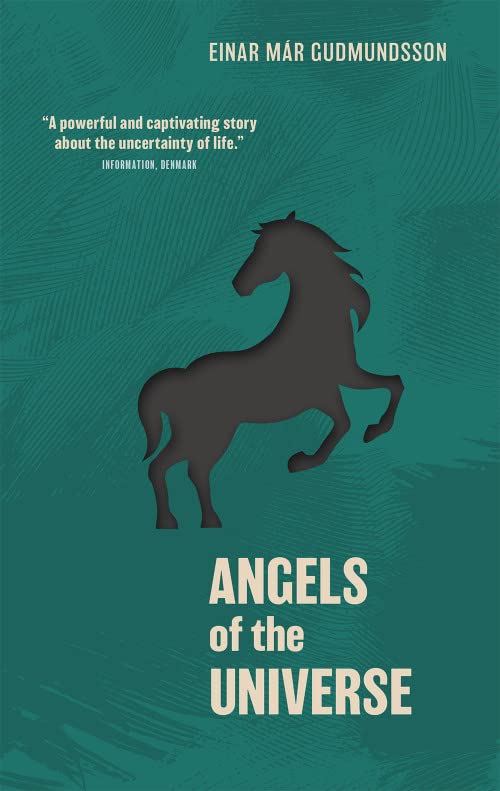
Any discussion of the best modern Icelandic books is likely going to bring up Angels of the Universe. This is a deep, dark novel that moves and frightens in equal measure. Our protagonist, Paul, is a man overcome by depression and schizophrenia, who ends up in Klepp Psychiatric Hospital, located at the edge of Reykjavik, but we begin with his childhood and go from there.
The story of Angels of the Universe was actually inspired by the life and experiences of the author’s own brother, and that adds an extra layer of intimacy and heartbreak to the narrative. In the early years section, we learn plenty about Paul’s family, and in the hospital section, we follow his adventures with his found family: troubled and ill men with their own traumas and delusions.
While this is a deeply sad novel, the lyrical quality and subtle injections of wit and humour make it poatic and engaging and enriching at the same time. You’ll never read a novel quite like Angels of the Universe, and it is certainly one of the finest Icelandic books out there.
The Fish Can Sing by Halldór Laxness
Translated by Magnus Magnusson
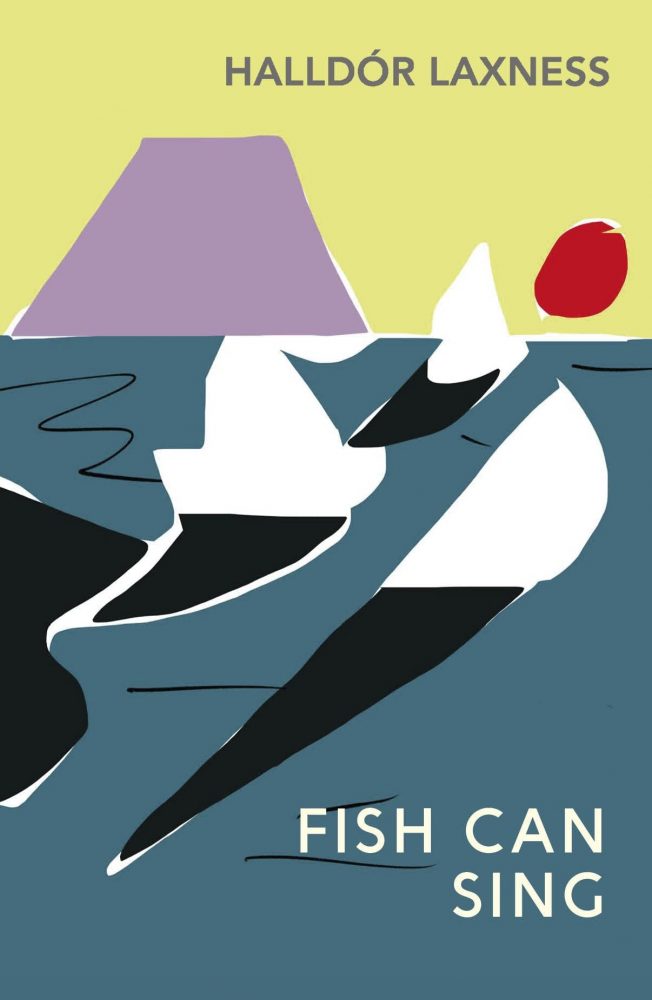
We’ve already talked extensively about the power and importance of Halldór Laxness’ fiction, as Iceland’s Nobel Prize winner. So if anyone is going to be featured twice, it’s going to be Laxness. The more of Laxness’ work you read, the more you can see an overlap between him and fellow Nobel Prize winner: the Japanese author Yasunari Kawabata.
Both of these authors wrote at around the same period in time, and both manage to bled a love for natural landscapes, art, and empty space with an examination of time’s effect on individual people. The Fish Can Sing tells the story of an orphan boy raised by a kindly elderly couple. Álfgrímur idolises his grandfather, Björn, and wants to follow in his footsteps as a peaceful fisherman.
This changes when Álfgrímur, who possesses his own musical talents, meets the internationally famous Icelandic opera singer Garðar Hólm. Holm tells Álfgrímur that he has talent and should pursue it beyond the shores of Iceland. But Hólm himself is strange; he never performs on Icelandic soil.
The quiet and slow crash that comes from the connecting of these two souls is what pulls the reader along on this journey of change and growth and understanding. The Fish Can Sing was published after Laxness won the Nobel Prize, and it retains the same themes and ideas that awarded him the prize in the first place.
This is a book about tradition versus modernity, the grounded versus the powerful, contentedness versus hunger. If you want to read the very best Icelandic books, you must read Halldór Laxness. It’s that simple.
Jar City by Arnaldur Indridason
Translated by Bernard Scudder
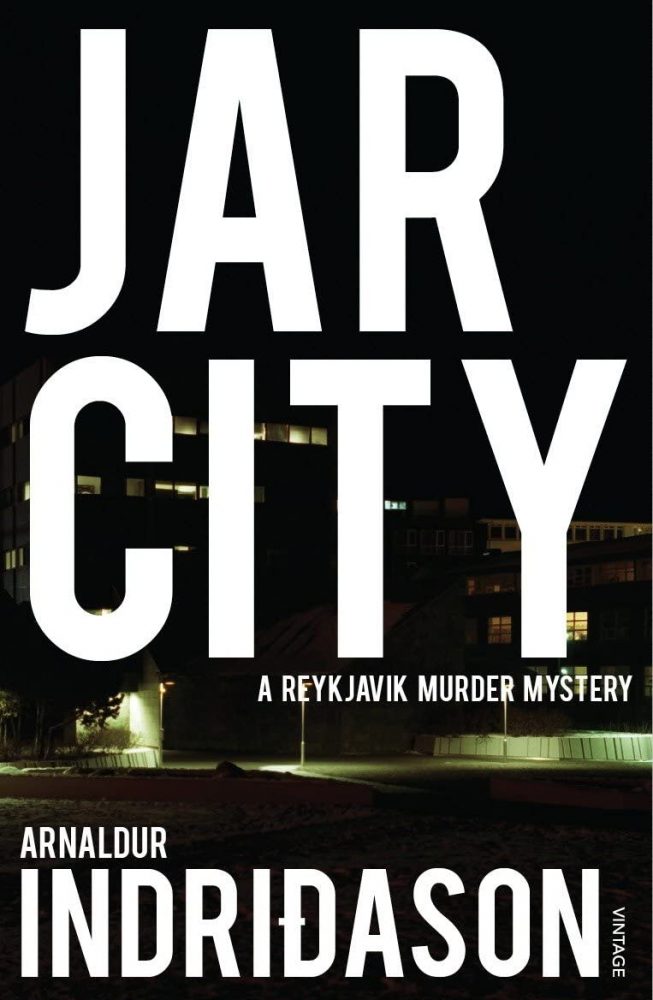
Speaking candidly, I’m not a fan of gritty crime noir novels (dad beach reads, if you like), but they make up so much of the modern literary canon of Iceland that it feels weird not discussing one here. Jar City is part of Arnaldur Indridason’s Reykjavik Murder Mystery, and it was even adapted into a 2008 movie by Icelandic actor/director Baltasar Kormákur.
Scandinavian crime noir is big, and Arnaldur Indridason stands shoulder-to-shoulder with authors like Norway’s Jo Nesbø and Sweden’s Stieg Larsson. As for Jar City itself, this is a police procedural that begins with an old man dead in his apartment, and a note that reads “I am HIM”.
Inspector Erlendur Sveinsson digs around into the personal history of the deceased and revelations come to light that change everything. The victim was, unsurprisingly, a sordid individual. But so is Inspect Sveinsson himself, as is often the case with noir crime stories. His life is far from easy and romantic, and he carries a lot of personal troubles with him as he works.
If you’re a fan of Scandinavian crime writers, or police procedurals in general, Arnaldur Indridason’s Reykjavik Murder Mystery series is a collection of essential Icelandic books.
101 Reykjavik by Hallgrímur Helgason
Translated by Brian FitzGibbon
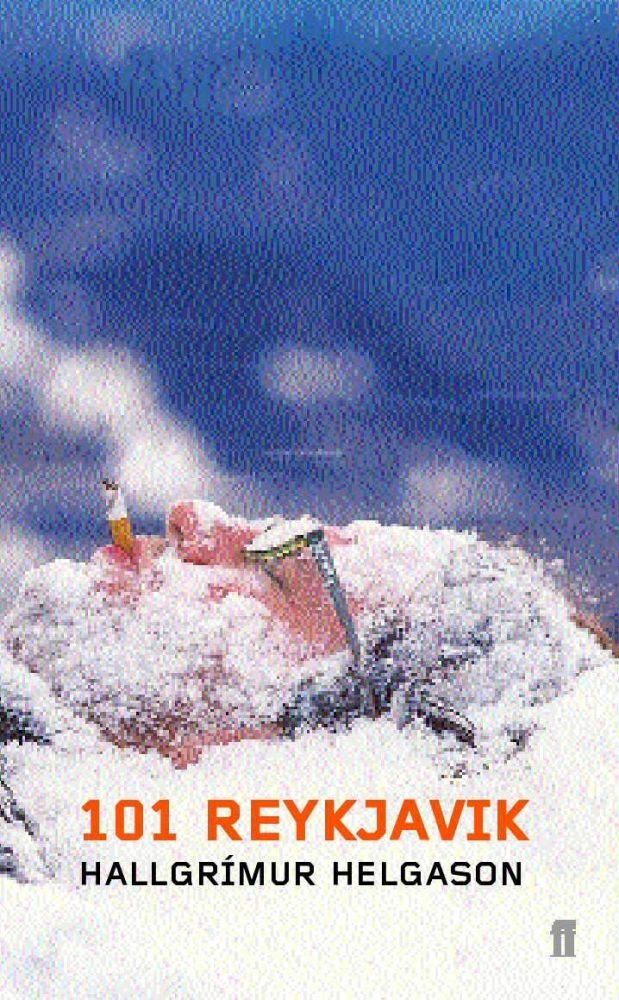
101 Reykjavik is another Icelandic novel that was adapted into an Icelandic movie by Baltasar Kormákur, who also stars in the film. The movie won a few awards and was very well-received. As for Hallgrímur Helgason’s original 1996 novel, its name is taken from the postcode for a central neighbourhood in Iceland’s capital.
The story of 101 Reykjavik follows the pathetic life of 30-something NEET man-child Hlynur Björn, who lives with his mother and does little more than ogling women online and off. In some ways reminiscent of John Kennedy Toole’s A Confederacy of Dunces, this is the darkly comic story of a deeply unlikeable young man.
For a book written in 1996, Reykjavik 101 vividly reminds us of modern-day internet incel culture. Björn is a creepy, porn-addicted misogynist who struggles with everyday conversation. If you’re a manga and amine fan, you’ll find parallels between Björn and the protagonist of Mushoku Tensei, at least in its opening chapters.
Reykjavik 101 is the definition of bleak, dark comedy. It’s not an enjoyable read for everyone, but those that click with it will really click. A superbly unique gem amongst the modern canon of Icelandic books.

